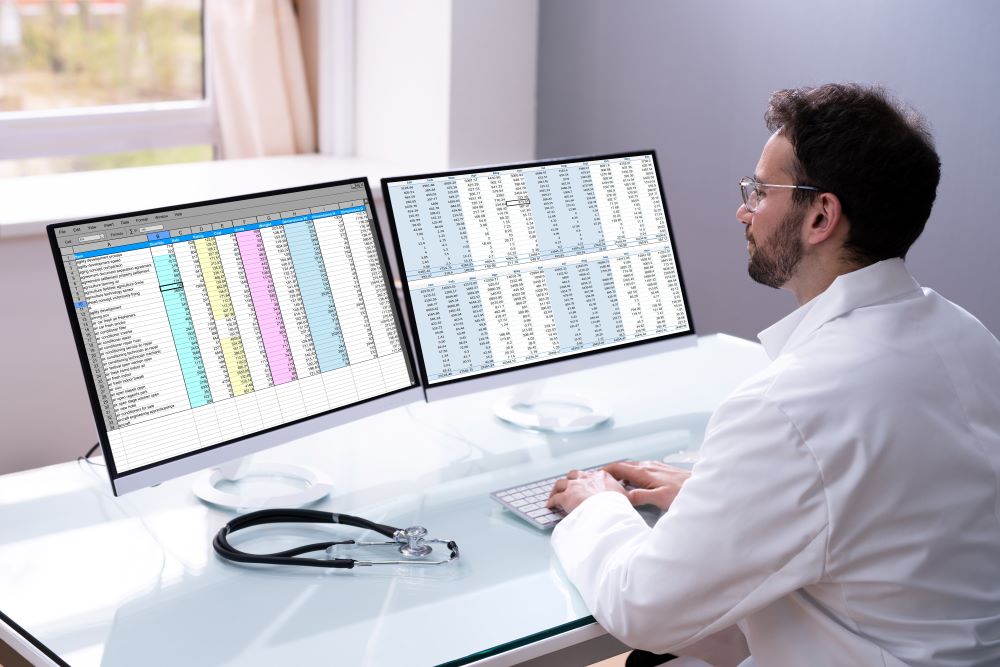
Revenue Cycle Automation: Benefits, Examples, and Use Cases in Healthcare

In today’s fast-changing healthcare industry, revenue cycle management automation has become essential for organizations seeking to improve efficiency, protect margins, and maintain financial stability. As billing complexity increases and staffing resources remain constrained, healthcare providers are turning to automation to streamline administrative processes, reduce errors, and improve the overall patient financial experience.
By leveraging technology to optimize revenue cycle workflows, healthcare organizations can reduce inefficiencies, accelerate reimbursement, and gain better visibility into financial performance.
What is Revenue Cycle Management Automation?
Revenue cycle management automation is the use of technology to streamline, standardize, and optimize the financial processes that track a patient’s care journey—from initial scheduling through final payment. Automation replaces manual, repetitive tasks with intelligent workflows that improve accuracy, reduce delays, and support faster reimbursement.
Automated revenue cycle management supports both front-end activities, like patient registration and insurance eligibility verification, and back-end functions, including medical coding, claims submission, payment posting, and collections.
Traditional RCM vs. automated RCM:
Traditional revenue cycle management relies heavily on manual data entry and staff intervention, increasing the risk of errors, denials, and delayed payments. Revenue cycle management automation uses technology such as artificial intelligence (AI), machine learning, and robotic process automation (RPA) to proactively identify issues, validate claims, and prioritize follow-up—resulting in more efficient workflows and stronger financial outcomes.
In short: Revenue cycle management automation helps healthcare organizations get paid faster, with fewer errors, and less administrative burden.
What Is the Revenue Cycle in Healthcare?
The revenue cycle in healthcare represents the complete lifecycle of a patient account—from the first interaction with a provider through final payment resolution. It connects clinical care delivery with billing, claims processing, and reimbursement, making it a critical component of healthcare operations.
The healthcare revenue cycle includes:
- Patient scheduling and registration
- Insurance eligibility and verification
- Clinical documentation and charge capture
- Medical coding and claims submission
- Denial management, payment posting, and collections
When any part of the revenue cycle breaks down, organizations experience delayed payments, increased denials, and revenue leakage. This is why automation has become increasingly important for managing the revenue cycle at scale.
For a deeper, step-by-step breakdown of how the RCM process works in practice, read our guide on the 12 essential steps of revenue cycle management, which explores common challenges and improvement opportunities at every stage.
Revenue Cycle Management in Medical Billing
Revenue cycle management in medical billing focuses on ensuring healthcare services are coded correctly, claims are submitted accurately, and reimbursements are collected efficiently. Errors in documentation, coding, or eligibility verification are among the most common causes of claim denials and delayed payments.
Automation improves medical billing by:
- Validating claims before submission
- Supporting accurate and compliant coding
- Reducing rework caused by preventable denials
- Accelerating payment posting and reconciliation
By integrating automation into medical billing workflows, healthcare organizations can improve cash flow while reducing administrative burden.
Key Benefits of Revenue Cycle Management Automation
- Faster Claims Processing
Automation reduces the time required to submit and process claims, helping providers receive payments more quickly. - Improved Patient Satisfaction
Automated billing systems reduce errors and improve transparency, creating a clearer and more patient-friendly financial experience. - Reduced Administrative Burdens
By automating repetitive tasks, staff can focus on higher-value work, such as patient engagement and care coordination.
AI and Machine Learning in RCM Automation
Artificial intelligence (AI) and machine learning play a critical role in modern revenue cycle management automation. These technologies analyze large volumes of data to identify patterns, predict outcomes, and improve decision-making.
Key AI-driven capabilities include:
By delivering actionable insights and automating routine tasks, AI helps healthcare organizations improve both operational efficiency and financial performance.
Learn more about how AI is transforming the revenue cycle by reading our article on How AI is Revolutionizing RCM Analytics.
Robotic Process Automation (RPA) in Revenue Cycle Management
Robotic process automation (RPA) uses digital bots to automate repetitive, rules-based tasks across the revenue cycle, including:
RPA improves consistency, accuracy, and compliance while freeing staff to focus on more complex, value-driven activities.
To learn how RPA and other tech-enabled solutions can optimize your revenue cycle, explore Tech-Enabled Solutions and discover how automation can drive greater efficiency and financial performance.
Challenges to Revenue Cycle Management Automation
While automation offers significant benefits, implementation can present challenges, including:
- Integration with legacy systems
- Staff resistance to new technologies
- Cybersecurity and data protection concerns
Choosing the right technology partner and implementation approach is critical to overcoming these challenges.
Examples of Successful RCM Automation
Healthcare organizations that implement RCM automation often see measurable improvements, such as:
- Reduced denial rates through AI-driven denial management
- Faster reimbursement cycles through automated claims submission
- Improved visibility into revenue performance
These results highlight the transformative potential of automation across the revenue cycle.
Future Trends in Revenue Cycle Management Technology
As healthcare organizations continue to embrace digital transformation, revenue cycle management (RCM) technology is evolving rapidly. These emerging innovations are reshaping the way providers manage billing, collections, and reimbursement—with a focus on automation, intelligence, and interoperability. Below are some of the most impactful trends shaping the future of RCM:
- AI-driven predictive analytics
Artificial intelligence (AI) and machine learning are increasingly being used to identify patterns in patient data, payer behavior, and claim outcomes. These tools allow healthcare providers to anticipate denials, flag high-risk claims before submission, and optimize collection strategies based on historical trends. Predictive models can also support staffing decisions, identifying workload trends and helping allocate resources more efficiently. - Smarter Clinical Documentation Tools
Next-generation clinical documentation improvement (CDI) systems are being embedded directly into EHRs, using natural language processing (NLP) and real-time prompts to guide providers toward more accurate and complete documentation. This enhances coding quality, reduces queries between clinical and billing teams, and accelerates the claims submission process. - Cloud-based RCM platforms
Cloud-native RCM platforms are becoming the standard, offering scalability, seamless integration with EHRs and practice management systems, and anytime-anywhere access to performance data. In addition to improving system uptime and flexibility, cloud solutions facilitate interoperability with third-party tools like eligibility verification, clearinghouses, and payment portals—making the entire revenue cycle more connected and transparent. - Real-Time Patient Financial Engagement Tools
Patients expect greater visibility and control over their healthcare expenses. Modern RCM platforms are now offering real-time cost estimators, digital payment plans, mobile billing, and self-service portals. These tools not only improve the patient experience but also increase collections by reducing confusion and missed payments. - Robotic Process Automation (RPA) for Repetitive Tasks
RPA continues to gain traction in automating repetitive, rules-based tasks such as claim status checks, prior authorization follow-ups, and data entry. By reducing manual workloads, RPA increases throughput, shortens revenue cycles, and minimizes human error.
How to Get Started with RCM Automation
To begin your automation journey:
- Evaluate pain points across your current revenue cycle
- Identify opportunities where automation can reduce manual work
- Choose technology aligned with your organization’s goals
- Train teams to ensure successful adoption
Why Choose TruBridge for Revenue Cycle Management Automation?
RCM automation is more than just a trend—it’s a game-changer for healthcare organizations looking to enhance efficiency, financial performance, and patient satisfaction. With the increasing complexity of the healthcare landscape, adopting advanced automation tools is essential for staying competitive and streamlining operations. In today’s complex healthcare environment, embracing advanced automation tools is key to staying competitive.
Our tech-enabled solutions, powered by AI, machine learning, and robotic process automation (RPA), are tailored to meet the unique needs of healthcare organizations. We help you reduce claim denials, accelerate payment cycles, and enhance overall financial health.
Ready to transform your revenue cycle?








